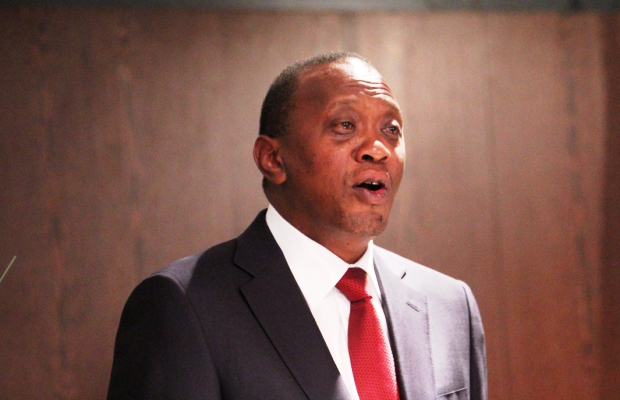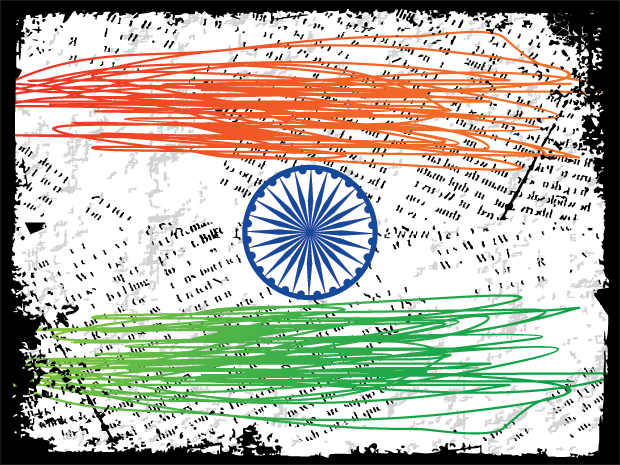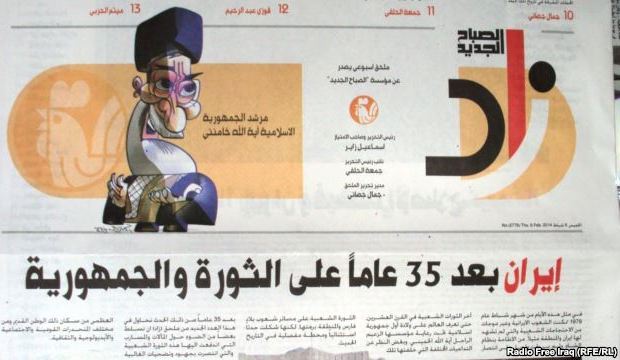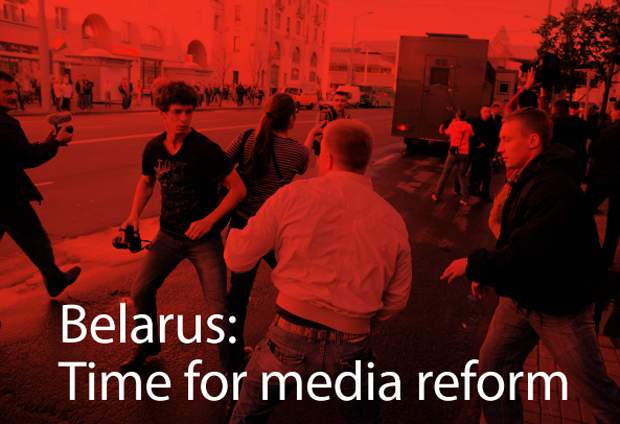14 Feb 2014 | Kenya, News and features, Politics and Society

Kenyan president Uhuru Kenyatta (Image Demotix/David Mbiyu)
In 2010 the International Criminal Court (ICC) issued summons for Uhuru Kenyatta and William Ruto, among others, for their alleged role in the violence that erupted following the 2007 Kenyan General Elections. The charges include crime against humanity. Nevertheless, in the elections of 2013, Kenyatta was sworn in as president — Ruto his deputy president — after securing 50.51 percent of the vote in a highly contested but generally peaceful election.
This now means that any movement to evaluate the defendants’ criminal culpability implicates the broader state itself. With Kenyatta and Ruto heading the executive branch of government, the implications of the ICC cases cannot be overstated. But while testing the state’s eagerness to confront the legacy of 2007 these cases offer up a further test; the ability of Kenya’s media institutions, journalists and citizens to freely interrogate the proceedings. Will Kenyatta, Ruto and, by extension, the state let such scrutiny happen in public?
Kenyan legislation in this regard is coloured by tragedy. Following the attacks on Westgate Mall in Nairobi in September 2013, the state moved fast to shore up perceived gaps in legislation that could have enabled the attacks to happen. One of these “gaps” referred to the media, ushering in two pieces of legislation: the Kenya Information and Communications (Amendment) Bill (KICA) and the Media Council Bill. The former, an amendment to the 1998 law, creates a Communication and Multimedia Appeals Tribunal under the jurisdiction of the state-controlled Communications Authority. According to free speech group Article 19, the tribunal has the power “to impose hefty fines on media houses and journalists, recommend de-registration of journalists and make any order on freedom of expression”.
While raising concerns for media bodies looking to cover the ICC cases of Kenyatta and Ruto among others, the Commission for the Implementation of the Constitution (CIC), have pointed out a number of more systemic issues. The 2010 constitution drafted to address the political and ethnic divisions that led to the violence of 2007 established robust protections for freedom of expression. KICA potentially undermines these protections, as CIC explained in a statement:
“Clause 7 of the Bill creates a Communications Authority of Kenya…with some of its board members appointed through a process that solely involves the National Executive and the National Assembly…These clauses violate the provisions of Article 34(3) of the Constitution by leaving the Body responsible for licensing broadcasters under the control of two arms of government, the Executive and the National Assembly.”
Any information deemed too sensitive to be in the public domain during the individual cases draws out KICA as a potential tool for the state to restrict the media’s ability to analyse the cases in an unobstructed manner.
The punitive measures outlined in KICA are not to be sniffed at. According to Charles Onyango Obbo of the Daily Nation: “The Sh20 million penalty against a media house that violated several provisions of the new Bill or the Code of Conduct for the Practice of Journalism, is again among the highest a tribunal can hand out in Africa.” A further provision states that media houses will face punitive measures if 45 percent of their coverage is not deemed “local”. The is a potential hindrance for media bodies looking to analyse the ICC cases – how local is The Hague?
Clause (37) of KICA goes on to state that the tribunal may “accept an anonymous complaint concerning an issue of public interest”. This inability for media bodies to identify its accusers opens the process up to manipulation. Can the tribunal determine that protecting Kenyatta and Ruto is in the public interest? When members of the tribunal are selected at the discretion of the National Executive, it is a possibility.
In the context of the ICC cases, this has created a perfect storm in terms of media freedom. Media houses face disproportionate measures, while their governance is outlined by a body at the discretion of both the executive and legislative branches of government – the former facing interrogation from both the ICC and the media.
It’s too early to tell what will happen and what powers will be invoked, but there have already been warning signs. A case was thrown out after it was alleged that a key witness had received a bribe from the defendant and questions remain regarding similar allegations in the case against William Ruto. Does this represent a collective desire to withhold information? The acts of alleged bribery are by no means definitive, but to skew proceedings, it would be the place to start.
And the next step? Media bodies must surely be holding their collective breath because, while they have not used them yet, KICA offers just the tools the state may need.
This article was posted on 14 February 2014 at indexoncensorship.org
14 Feb 2014 | Belarus, News and features
Join Index at a presentation of a new policy paper on media freedom in Belarus on 19 February, 2014, 15.00 at the Office for Democratic Belarus in Brussels.
This article is the fifth and final of a series based on the Index on Censorship report Belarus: Time for media reform.
Analysis shows there have been no visible improvements of Belrusian media freedom during in recent years. The state continues to dominate the broadcast media market and preserves tight control over printed publications. State-owned media are used as a tool for government propaganda, while the independent socio-political press faces discrimination. The internet re-shapes the news media market as it provides new opportunities for free flow of information and ideas, but its full-scale development as a free speech domain is hindered by economic peculiarities and attempts of state regulation.
Despite continuous calls for reforms from Belarusin civil society and the international community, media-related legislation remains restrictive and fails to foster the development of pluralistic and independent news media in Belarus. Other laws, such as defamation articles of the Criminal Code, anti-extremist or state secrets legislation are also used to curtail media freedom, restrict access to information and prosecute journalists. Despite the recent talks between Belarus’s Foreign Ministry and the Office of the OSCE Representative on Freedom of the Media, the authorities of the country remain reluctant to discuss any possible legal reforms of the media field with civil society and professional community.
Physical safety of journalists and impunity remain serious problems that have a chilling effect of media freedom in Belarus. The most acute issue is police interference with journalistic activities and arbitrary detentions of reporters during mass street actions.
As Belarus remains one of the least free places in Europe for journalists and the media to operate, immediate reforms of the Belarus media field should be launched to end harassment and persecution of reporters, and eliminate excessive state interference in media freedom.
The European Union and other international institutions must place the issue of media freedom on the agenda of any dialogue with the Belarusian authorities to demand genuine reforms of the media for the country to live up to its international commitments in the field of freedom of expression.
Index on Censorship believes changes are needed to bring the Belarusian media-related legislation and practices of its implementation in line with the Constitution of the country and its international commitments.
Reforms of the Belarusian media field should be launched, including de-monopolising of the electronic media, introducing public service media and creating a competitive media market. The outline of these reforms should result from a dialogue with professional community and civil society of the country.
The practice of arbitrary detention of journalists, including those that cover street actions, should be immediately stopped. All cases of interference of the police and other state officials into legitimate journalistic activity should be investigated, and those responsible should be brought to account.
All forms of economic discrimination against non-state independent press should be eliminated, in particular:
• independent publications should be treated equally by the state system of press distribution and Belposhta subscription catalogues;
• the state has a pro-active duty to protect and promote freedom of expression and so should investigate anti-competitive practices including the charging of unequal prices for paper and the distribution services for publications for different types of ownership.
The Law of the Republic of Belarus “On Mass Media” must be reformed, in particular:
• to allow for independent self-regulation of journalism allowing reporters of both online and offline news media, including freelance journalists, to operate freely;
• registration procedures for new media outlets should be simplified to lift all the artificial restrictions for entering the media market;
• a possibility of extrajudicial closing down of media should be eliminated; the Ministry of Information should not have the authority to impose sanctions on media, including initiating of cases of closure of media outlets.
Six articles of the Criminal Code providing for criminal liability for defamation should be abolished:
• Article 188 “Libel”
• Article 189 “Insult”
• Article 367 “Libel in relation to the President of the Republic of Belarus”
• Article 368 “Insulting the President of the Republic of Belarus”
• Article 369 “Insulting the representative of the authorities”
• Article 369–1 “Discrediting the Republic of Belarus”
Equal and full access to information should be ensured for all journalists of both online and offline media. The institute of accreditation should not be used to restrict the right to access information. In particular, the existing ban for cooperation with foreign media without an accreditation should be lifted as it contradicts the Constitution of Belarus and its international commitments in the field of freedom of expression.
Several provisions of the Presidential Decree No 60 of 1 February 2010 on regulating the internet should be dropped in line with the recommendations in ‘Belarus: Pulling the Plug’ policy paper, along with various other edicts related to the implementation of the decree. In particular, owners of websites should be free to register them at any domain and host them in any country. News websites should not be black-listed and blocked.
Part 1 Belarus: Europe’s most hostile media environment | Part 2 Belarus: A distorted media market strangles independent voices | Part 3 Belarus: Legal frameworks and regulations stifle new competitors | Part 4 Belarus: Violence and intimidation of journalists unchecked | Part 5 Belarus must reform its approach to media freedom
A full report in PDF is available here
This article was published on 14 February 2014 at indexoncensorship.org
13 Feb 2014 | India, News and features, Politics and Society
 The Indian judiciary, with its prickly ego and halo of righteousness, has always wielded the sword of “contempt” in a swashbuckling manner.
The Indian judiciary, with its prickly ego and halo of righteousness, has always wielded the sword of “contempt” in a swashbuckling manner.
In 1995, the movie Gentleman had some scenes in which judges were shown as being subservient to politicians, and susceptible to bribery. The filmmaker had two options- delete those “offending” scenes, or face prison for contempt of court. Needless to say, he settled for the former. Then in 2001, a fortnightly magazine carried out a performance evaluation of some judges of the Delhi High Court, and published a Report Card, grading them on integrity and competence. The court saw red at this “scandalising”, and slammed a sentence for conviction. Of course, the court praised itself: the judiciary was the “messiah” which protected the press and media from state interference. Meanwhile, when it comes to allegations of personal misdemeanour and malfeasance by judges, nobody needs to even petition the court. It swoops down on its own and muzzles the press.
However, this imperiousness pales in comparison to the Delhi High Court’s award of a gag order in the case of Justice Swatanter Kumar, a retired judge of the Supreme Court, accused of sexually harassing one of his female interns. The 16 January order is nothing less than a generous reward to a SLAPP suit, and worse, it also reveals a manifest bias in favour of the plaintiff, almost as if there was a concerted effort to stifle accountability.
On 30 November 2013, a former intern filed a complaint of sexual harassment against the judge, and when the Supreme Court declined to intervene, on 10 January, she took recourse to a PIL (Public Interest Litigation) before the same court. Coming right on the heels of another similar case, it made to all the front pages and television channels. Though there were some headlines which could have been phrased better, not a single paper or channel even remotely speculated on the veracity of the allegations. All they did was quote from the complainant’s petition and disclose the name of the judge. On 14 January, a phalanx of legal eagles threw their lot in with the accused judge and made a beeline for the Delhi High Court. Their vociferous assertion was tha newspapers, television channels, and the intern had colluded to tarnish the reputation of an upright judge by leveling malicious and scurrilous charges.
Two questions hit us at this juncture. One: when the petition was pending before the Supreme Court, why would the plaintiffs rush to the Delhi High Court, unless of course, forum shopping was their objective ? Two: if their beef was with the allegedly defamatory reportage, why would they also sue the intern?
Parsing the order granting an interim injunction might hint at some answers. The issue before the court was a simple one – whether the defendant newspaper and television channels’ actions amounted to trial by media and resulted in adverse publicity against the accused judge. (Un)surpringly, Justice Manmohan Singh starts by praising the judge’s sterling record on the Bench, and arrogates to itself the right to decide whether there was a smidgen of truth in the allegations. He also holds forth on the need for a statute of limitations in cases of sexual harassment. Then he cites a Supreme Court judgement which had justified prior restraint on reportage and in one fell swoop imposes a blanket ban on reporting of the case. This ban’s scope is scary- besides media houses, “any other person, entity, in print or electronic media or via internet or otherwise” were also drawn in.
Effectively, it means that no one, not even a person or a blogger not connected with the case, could write, or even tweet anything about it. When in most jurisdictions bloggers are being granted the same protection as journalists, could there be a more regressive step?
Legally India, a web portal had used a heavily pixelated image of the judge, so as to eliminate any identifying marks and carried a report totally in accordance with the court’s injunction. Despite that, the fire-and-brimstone emails it received from the plaintiff’s solicitors leave no room for doubt- that intimidating into silence is the only objective. The plaintive plea about irreparable damage to reputation is only a chimera.
A free press is indispensable for speaking truth to power, even the vast powers of the judiciary. Moreover, the Constitution of India makes it incumbent upon the judiciary to protect the press so that accountability and rule of law do not remain mere shibboleths. And when this same august institution clearly appears to champions SLAPP suits, it is indeed a mockery of the rule of law, as a livid Editors Guild said without pulling any punches.
This article was published on 13 February 2014 at indexoncensorship.org
13 Feb 2014 | Iraq, News and features, Politics and Society

Al-sabah al jadeed’s caricature of Ayatollah Khamenei (Image RFE/RL)
Independent Iraqi daily newspaper Al-Sabah Al-Jadeed has survived numerous attempts to destroy it over its 10 year existence. But on 10 February, the newspaper’s Baghdad office was bombed and now its future is in doubt. The daily may need to find a new office, employees are fleeing, and its website is facing one DoS attack after another.
Windows, furniture and equipment were damaged when a bomb went in front of the building at 4.30 am. Later that morning another bomb exploded not far from the newspaper, while an unexploded heavy C4 plastic explosive device was found inside the premises and dismantled by police. No one was injured or killed, as the office was empty – but some neighbours are suggesting that the newspaper should move.
A few hours later that same day a militia-like group entered the building. “They came threatening us in broad daylight, so to speak,” says Ismael Zayer, editor in chief. The group escaped after employees managed to warn the police.
The bomb attacks followed a social media campaign to demand the closure of the newspaper after it published its weekly supplement Zad on 6 February. The supplement was devoted to the 35th anniversary of the Islamic Revolution in Iran and on the cover featured a caricature of Iran’s supreme leader, Ayatollah Ali Khamenei. The cover caricature is a tradition for Zad, a supplement that came into existence in the first months of the Arab Spring. Ahmed al-Rubaie, the newspaper’s cartoonist, has drawn hundreds of caricatures of political and religious figures, from Iraqi president Jalal Talabani, Najaf’s grand ayatollah Al-Sistani and prime minister Nouri al-Maliki to Nelson Mandela and other internationally known figures. These cartoons are never intended to be offensive or convey a negative message, they are just an alternative to uninteresting photos of VIPs.
Zayer believes the caricature of Khamenei is just a pretext to attack the newspaper and have it closed before the parliamentary elections planned for this spring. But there may be yet more reasons for the attacks and threats against the newspaper. Al-Sabah Al-Jadeed recently covered a damning report by Human Rights Watch on the abuse of female detainees in Iraqi prisons. HRW accused the government of illegally detaining wives and daughters of (Sunni) suspects who are on the run, claiming detainees were sexually abused. Zayer wrote an open letter to the government, demanding that the Minister of Justice, Hassan al-Shimmari, be sacked. “I am ashamed of my country,” he commented, “What are we? A whorehouse?”
After some efforts to convince the Ministry of Interior to protect the newspaper and its staff, the office of the newspaper is now under permanent surveillance by the police, but it is unclear for how long. Zayer has left the country temporarily after receiving death threats. This is not the first time the editor has been forced to flee Baghdad.
In the beginning of 2006 when Iraq’s sectarian conflict led to thousands of assassinations a month, Zayer managed the newspaper from a small office in Amman, Jordan. He planned to create an international edition for the millions of Iraqi refugees outside their home country – a project that was almost ready to be launched when on 30 December, Saddam Hussein was hanged in a way that scandalised his Jordanian supporters and made the company that was going to produce the international edition wary of printing a newspaper critical of Ba’athists.
Zayer decided to open a second bureau in Erbil, the relatively safe capital of the autonomous Kurdish Region, and to bring back around a dozen journalists that had escaped to neighbouring Jordan, Lebanon and Syria. The bureau was maintained until the very end of 2009, when Zayer and most of his staff went back to Baghdad.
The newspaper has faced many other challenges. In May 2004, Zayer’s driver and bodyguard were killed during an attempt by fake police to kidnap the editor in chief. Later, one of Zayer’s brothers was kidnapped for a hefty ransom. More than once ministers ordered an advertising boycott – a large part of the advertising in the newspaper concerns government tenders, next to a steady stream of ads by mobile phone companies and real estate firms. Nowadays, a strange rule is in force that says tender ads can only be paid once the tender has been decided – as a result, the newspaper is sitting on hundreds of unpaid bills.
From 2006 until 2008, when Nouri al-Maliki, after having been under siege in Basra himself, finally decided to defeat the Shi’ite militias in the south and the capital, distribution of the newspaper was often prohibited in many cities and Baghdadi neighbourhoods. Distribution north of the capital was completely disrupted during the American siege of Fallujah at the end of 2004 – and for a long time thereafter. The Borsa in Baghdad, a building from where for years, several independent and party newspapers were sold to traders every morning, was occupied for months by Ba’athists. Sometimes printing houses ran out of paper after trucks were stolen on the road from Amman to Baghdad and their drivers killed.
By attempting to create a modern, democratic trade union for journalists, Zayer, who was elected its first president, ran into serious trouble with the old union, one of the many Ba’athist institutions the US occupation’s administration had left intact.
The newspaper has survived several libel cases brought on by various politicians demanding potentially ruinous compensation sums, owing its victories to courageous independent judges. It has survived vicious campaigns on the internet claiming it is in “American-Zionist” hands. Recently it survived the flooding of large parts of Baghdad, as a result of bad maintenance of the sewage system and torrential rain.
Iraqi readers have shown their support for the newspaper after the bomb attack. This February is not the first time there is no Al-Sabah Al-Jadeed in the streets – but this time, as those responsible for the bomb attack didn’t leave a business card, with whom should the newspaper negotiate? Removing the supplement from the website hasn’t helped to assuage the anger about the innocent caricature of Khamenei. In the past the newspaper could hang on thanks to financial help from donors, as well as political support from Iraqi ministers and top officials who think independent media are at least a necessary evil. It certainly needs solidarity now.
This article was published on 13 February 2014 at indexoncensorship.org



 The Indian judiciary, with its prickly ego and halo of righteousness, has always wielded the sword of “contempt” in a swashbuckling manner.
The Indian judiciary, with its prickly ego and halo of righteousness, has always wielded the sword of “contempt” in a swashbuckling manner.